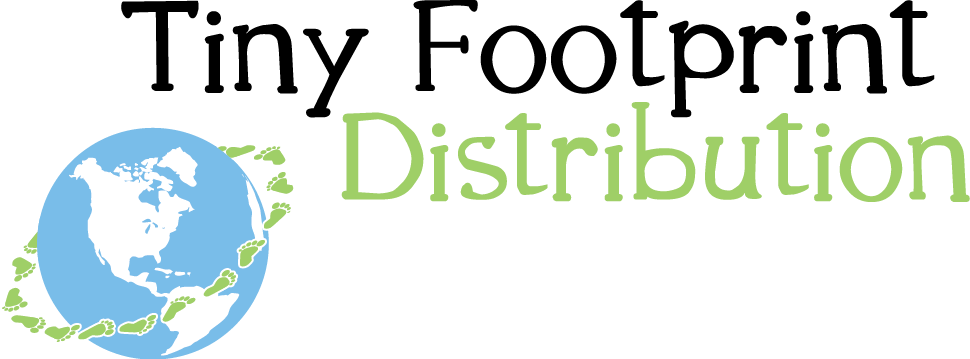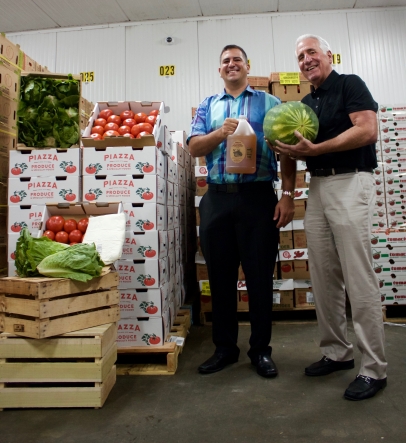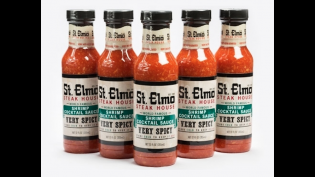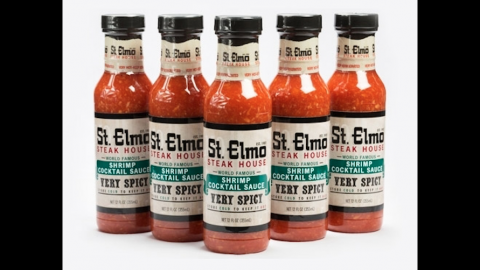Local Wholesalers Give Support to Area Start-ups
You may have noticed grocery shopping and menu reading have become more interesting in Central Indiana. As an alternative to purchasing national brands or choosing food made from ingredients from far-off places such as California, consumers now have more access to local products. Displays of regionally sourced products with their brightly colored artistic labels are a common site in major food stores. Likewise, some restaurants provide “bios” of the farm where a menu item’s ingredients originated.
Retailers and restaurants want to support local food entrepreneurs and growers, and they realize buyers want these products, as well. Shoppers enjoy knowing that what they are purchasing was made with ingredients grown close to home. They are drawn to these tasty offerings, which not only tend to be free from preservatives but are usually made in smaller quantities.
On the other side of the coin are the “foodpreneurs.” Just as everyone carries their best dish to a pitch-in dinner, these start-ups bring their proudest specialty to market. Their products or produce, whether inspired by the dream of selling sauces from family recipes or the desire to farm the land, are the result of much planning and hard work.
So how do major retailers and restaurants find local food artisans and area organic farms that are conscious of best practices for sustainability? And how can entrepreneurs market their wares to larger stores and eateries? Fortunately there are two Indianapolis-based companies, Piazza Produce and Tiny Footprint Distribution, dedicated to connecting small vendors with Midwest retailers and restaurants who wish to provide locally produced goods to their customers.
This is a win-win situation. Retailers and restaurants are able to find a wholesale source with a variety of locally produced goods, and vendors can cultivate their fledging businesses while reaping the support of the distributors with which they partner.
“We have been involved with locally grown produce since 1970, before it became trendy,” said Marcus Agresta, vice president of sales and marketing for Piazza produce. If needed, he said, Piazza will train growers to meet industry standards. “We bring them in here and let them know how things are done. For instance, we show them how to pack 24 heads of lettuce in a case or the proper size of tomatoes to put in a selling box.”
Piazza can also offer support by sharing storage and handling ideas. However, before the company will consider working with a start-up operation, the proper licensing, permits and insurance must be in order.
“We need to ensure a food safety program is in place as well as quality and an adequate supply of produce,” Agresta said.
Growers who work with Piazza Produce benefit from marketing support. Blurbs highlighting the growers are featured on the company’s website. Restaurants who purchase the produce are supplied with information about the farm of origin.
 Tiny Footprint Distribution specializes in linking start-up companies that yield foodstuffs such as artisan cheeses, organic meats and unique salsas with retailers who want to offer niche products to customers. Every candidate company considered is tasted by a panel of seasoned experts who have been in the business for years. Each product is also evaluated on shelf and price appeal and suggestions may be given to the start-up regarding these areas.
Tiny Footprint Distribution specializes in linking start-up companies that yield foodstuffs such as artisan cheeses, organic meats and unique salsas with retailers who want to offer niche products to customers. Every candidate company considered is tasted by a panel of seasoned experts who have been in the business for years. Each product is also evaluated on shelf and price appeal and suggestions may be given to the start-up regarding these areas.
“We offer guidance and advice on production and packaging, if needed,” said John Freeland, vice president of Tiny Footprint Distribution’s parent company, BEAN, LLC.
However, by the time a start-up gets to the point of considering distribution beyond farmers’ markets, craft fairs and holiday bazaars, they typically have already jumped through several hoops. The product must be made in a commercial kitchen or by a co-packer employed by the start-up to produce it. The type of container usually has already been developed and testing has been conducted for labeling information such as nutrition facts, ingredient list and calorie amount.
What the vendors really appreciate is the opportunity to grow their business by becoming part of a delivery network. Agresta relayed the story of one small farmer.
“He was spending all his time in his truck, making deliveries. He realized he did not want to do that anymore and was grateful we could take over that part of his business for him.”
Freeland summed up the value of a wholesale distribution company: “These entrepreneurs have a love and passion for their product. But they realize they can’t do everything themselves. They would rather spend their time developing new products than worrying about finding places that will sell them.”
Have a product ready for the next level?
Piazza Produce, PiazzaProduce.com, 317.872.0101
Tiny Footprint Distribution, TinyFootPrintDistribution.com, 317.377.1426







